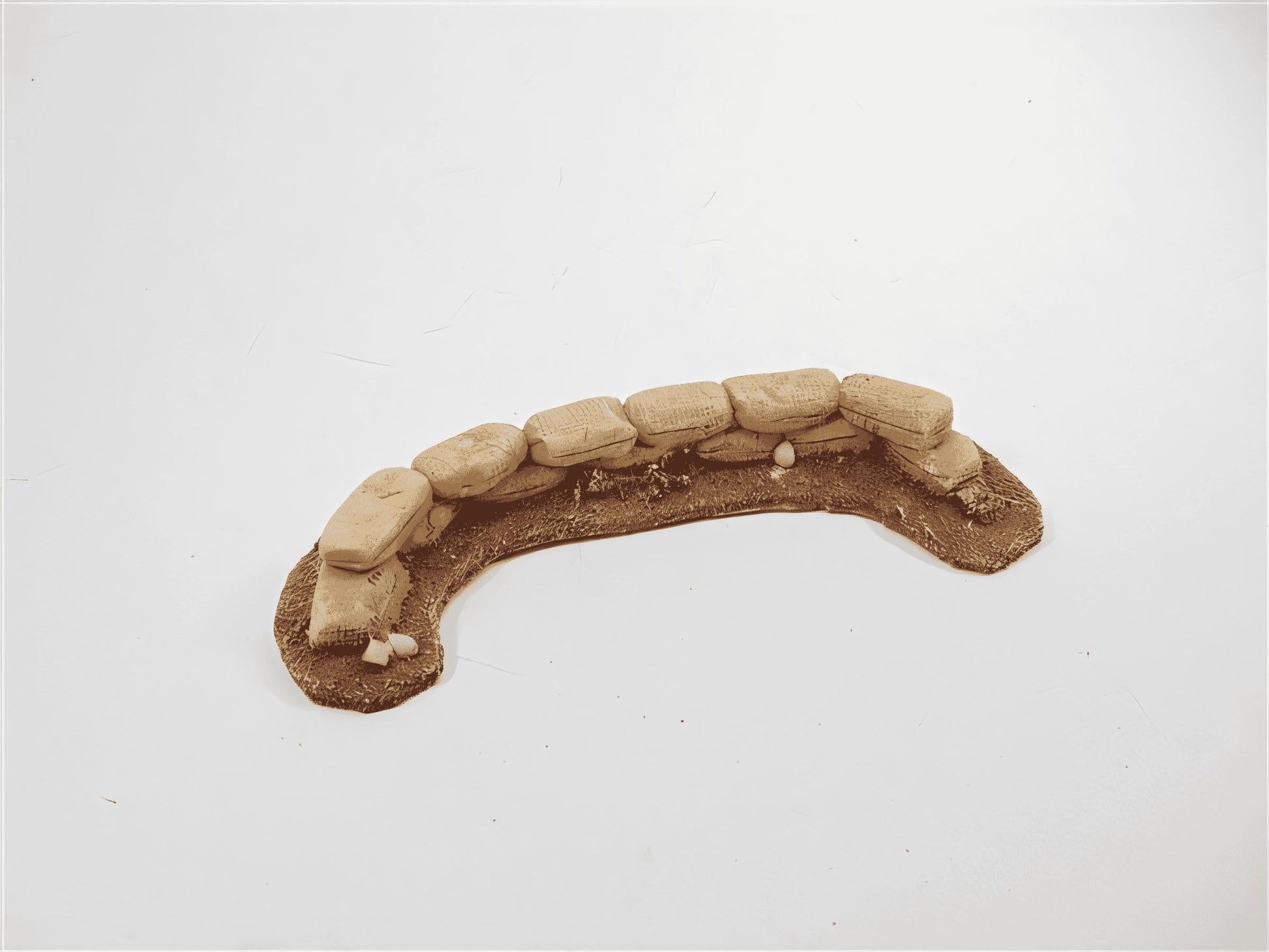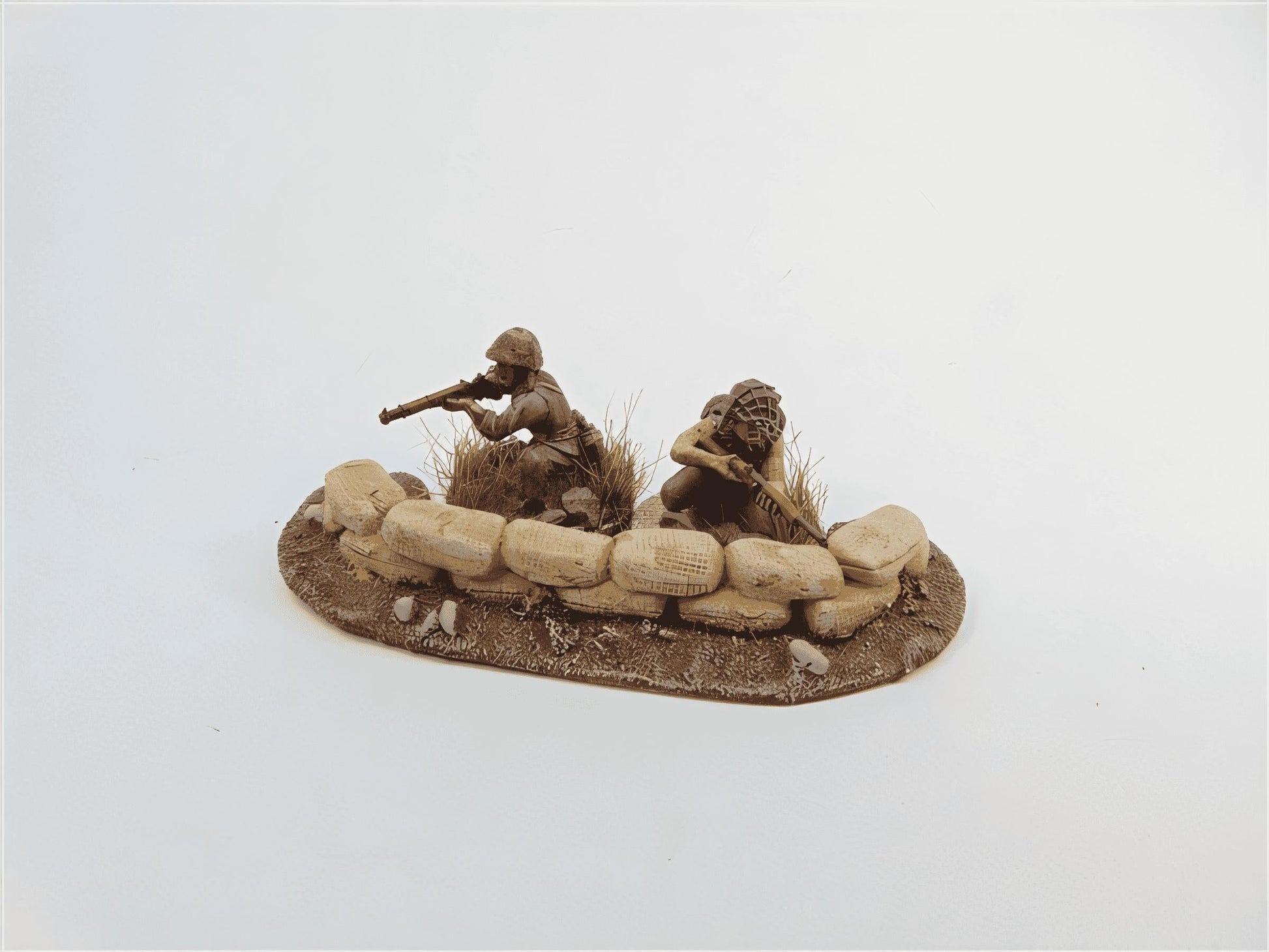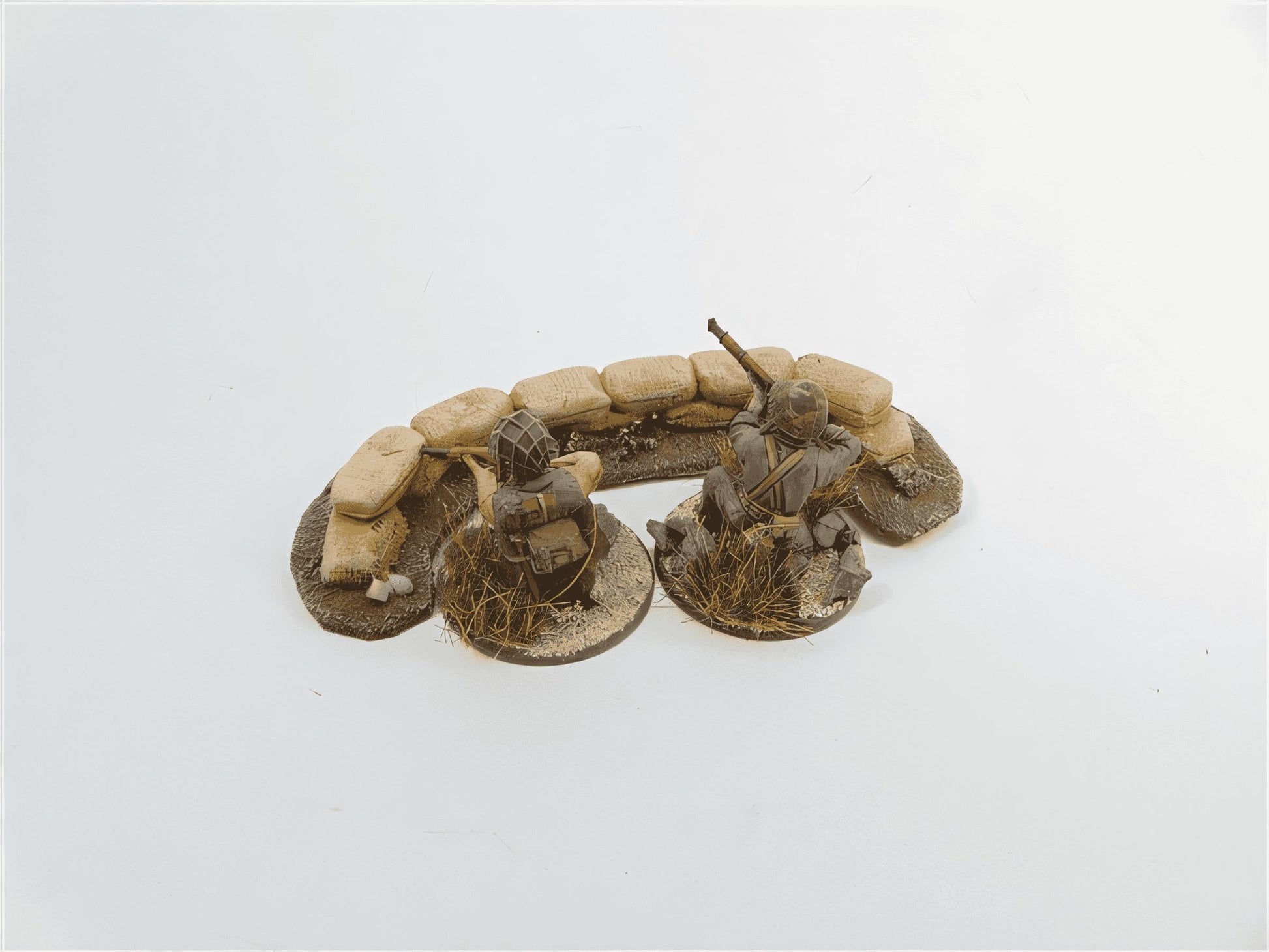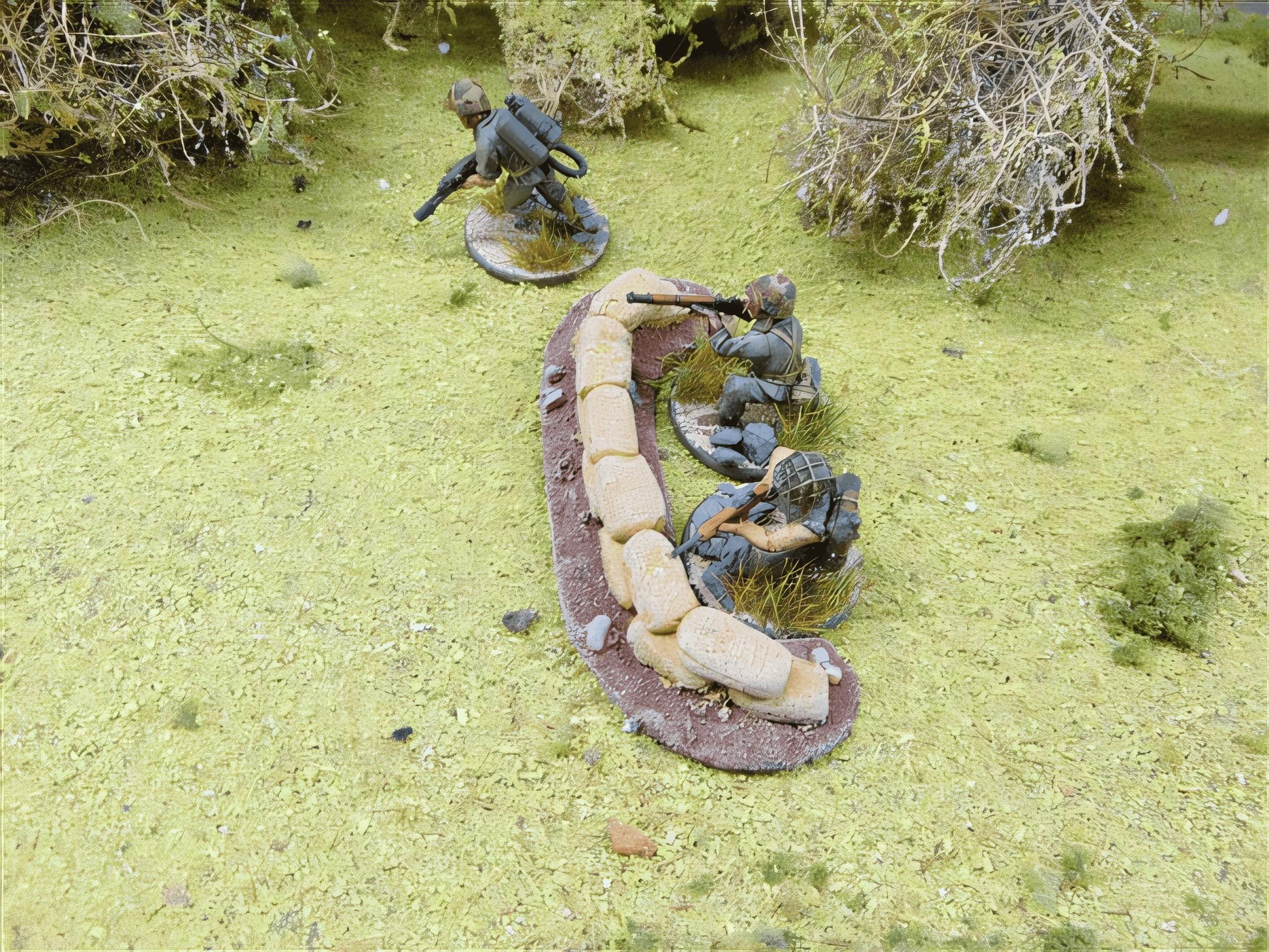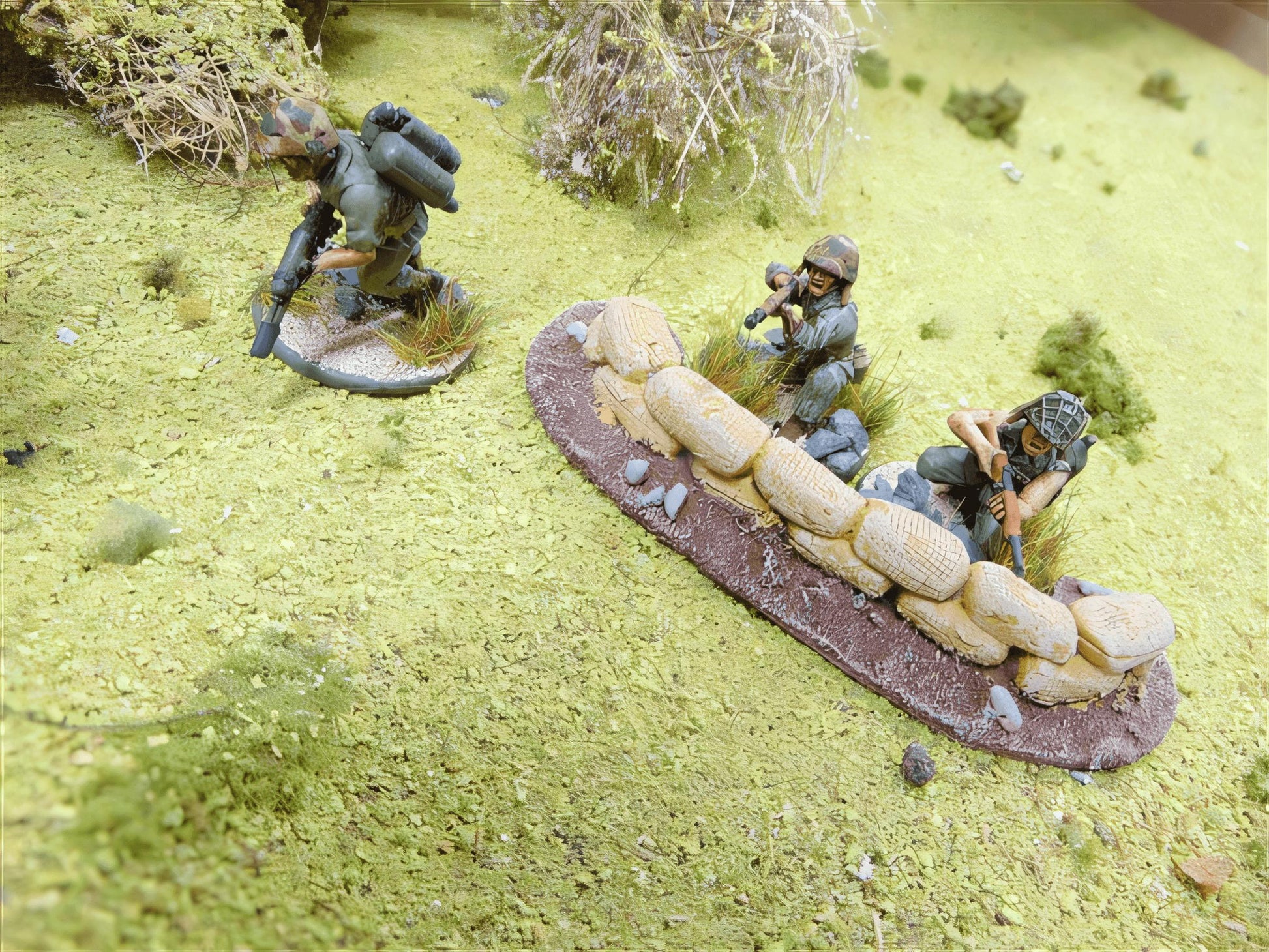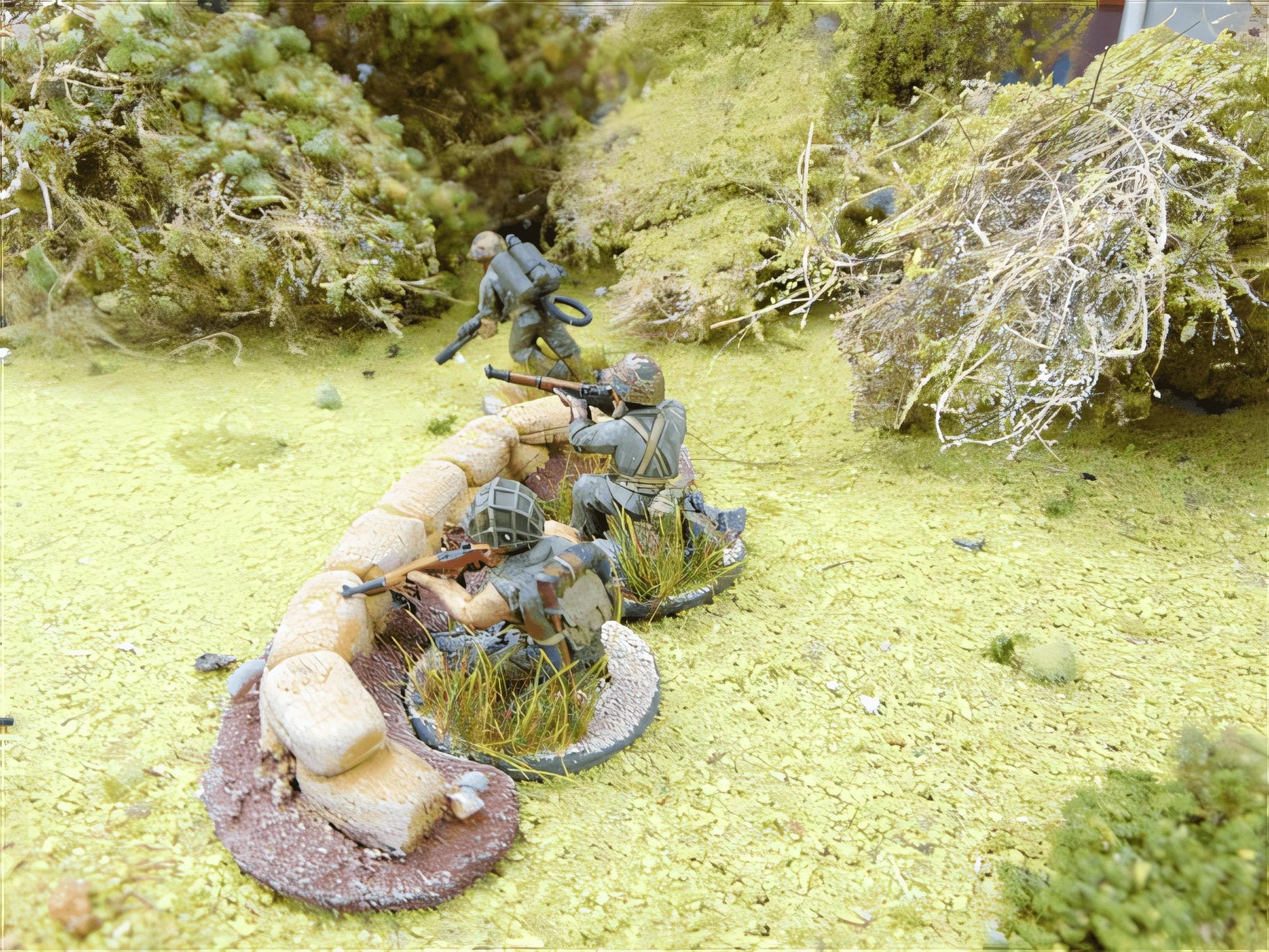ANYSCALE MODELS
Couldn't load pickup availability
The problem we face on the flat wargames table is representing holes in the ground. A sand table solves this but at immense weight and expense so this model is designed to play the role of the forward lip of a hole in the ground. This 1:56 scale model is designed to enhance your wargaming experience with its realistic representation of a small 2-man foxhole which gives the sense of a hastily prepared defence position.
For the wargamer using 28mm figures in their historical gaming this model is just one of my range of 1:56 scale resin cast pieces that are designed to help you create all sorts of interesting scenarios in your tabletop gaming. Whether terrain, building, vehicle or detail accessory you are sure to find lots of unique pieces in this collection of scale miniatures. As a keen gamer myself, I understand the importance of accuracy and realism in models for historical wargaming plus the need for speed from purchase to table top. I have tried to make as many of my models as I can requiring no assembly. Some do, but I have tried to keep the parts to as few pieces as possible. All are supplied unpainted giving you the opportunity to personalise it with a paint scheme that fits your own game's era and theatre. The final look is up to you. Also have a look at the 1:48 scale section for items that fit better with larger figures.
1: 56 scale for 28 mm wargames. A small 2 man foxhole forward edge defence. Ideal for 25 mm dia based kneeling figs.
Dimensions 81 mm frontage x 34 mm deep x 11 mm high.
The ‘IN ACTION’ images of this model are included here in order to give you some ideas for setting the scene on your own model railway or wargaming table. Many of the other items in the photographs are also produced by me and are available here from this site. The majority of the painting and detailing work was done using mainly acrylic paints due to their fast drying time. The process is to wash the resin model in warm soapy water to remove any traces of the silicone mould release agent. This will aid good paint adhesion. Next I recommend a primer, but I don’t bother unless the model will be subject to a lot of handling. After applying the main colours I then use a dark wash to increase the contrast and once dry a quick ‘dry brush’ with a lighter shade to pick up the raised details. Finally a spray or brush matt varnish for protection."- Stuart






